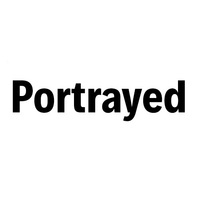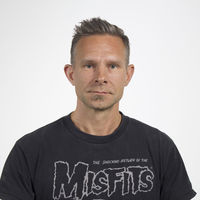
Ludvig Beckman
Related Authors
Kurt Wicke
University West, Sweden
Kurt Wicke
University West, Sweden
Anu Koivunen
University of Turku
Martin Lundberg
Linköping University
Oscar Hagberg
Lund University
Magnus Dahlstedt
Linköping University
InterestsView All (9)








Uploads
Books by Ludvig Beckman
En förvirrande situation har uppstått där föreställningen om det suveräna folket underblåser kritiken mot demokratins, folkstyrets, organisering. Så hur kan och bör vi förstå demokratins löfte om att makten utgår från folket?
All makt åt folket ger läsaren ögonöppnande perspektiv och redskap till ett kritiskt – och självkritiskt – granskande av demokratins mest grundläggande princip.
This novel approach adds a broad array of critical, conceptual and normative perspectives on the borders, territories and political agents of the state, employing a variety of disciplines to explore the possibilities and challenges for citizens as political agents in light of present processes of fragmentation and pluralization.
In this volume, schematically divided into two parts, Ludvig Beckman challenges the common view that support for the good life, the politics of virtue, is in conflict with liberal principles. In clear, analytical language he addresses the question of what a state should do. Chapter 1 attempts to specify the meaning of "liberalism"; chapter 2 discusses the meaning of tolerance and makes more specific the notion of "virtue"; chapters 3 and 4 assess ethical and political liberalism as exemplified by the writings of Ronald Dworkin and John Rawls. In part two, chapter 5 discusses the clash between norms of justice and conceptions of virtue in the family; chapter 6 explores the meaning of the idea of an ethically neutral state; chapter 7 explores three different arguments for the neutral state as found in the work of Ronald Dworkin; chapter 8 presents an analysis of the idea of the neutral state with the theory of John Rawls put under scrutiny; chapter 9 explains why the attempt to justify the neutral state by referring to modified skepticism fails and proposes a distinction between being skeptical and being critical.
Participating in the current debate on communitarianism, The Liberal State and the Politics of Virtue will be particularly interesting to people engaged in the public debate on ethics, morality and the state. It will also be of interest to teachers and researchers in the fields of politics and philosophy."
Papers by Ludvig Beckman
En förvirrande situation har uppstått där föreställningen om det suveräna folket underblåser kritiken mot demokratins, folkstyrets, organisering. Så hur kan och bör vi förstå demokratins löfte om att makten utgår från folket?
All makt åt folket ger läsaren ögonöppnande perspektiv och redskap till ett kritiskt – och självkritiskt – granskande av demokratins mest grundläggande princip.
This novel approach adds a broad array of critical, conceptual and normative perspectives on the borders, territories and political agents of the state, employing a variety of disciplines to explore the possibilities and challenges for citizens as political agents in light of present processes of fragmentation and pluralization.
In this volume, schematically divided into two parts, Ludvig Beckman challenges the common view that support for the good life, the politics of virtue, is in conflict with liberal principles. In clear, analytical language he addresses the question of what a state should do. Chapter 1 attempts to specify the meaning of "liberalism"; chapter 2 discusses the meaning of tolerance and makes more specific the notion of "virtue"; chapters 3 and 4 assess ethical and political liberalism as exemplified by the writings of Ronald Dworkin and John Rawls. In part two, chapter 5 discusses the clash between norms of justice and conceptions of virtue in the family; chapter 6 explores the meaning of the idea of an ethically neutral state; chapter 7 explores three different arguments for the neutral state as found in the work of Ronald Dworkin; chapter 8 presents an analysis of the idea of the neutral state with the theory of John Rawls put under scrutiny; chapter 9 explains why the attempt to justify the neutral state by referring to modified skepticism fails and proposes a distinction between being skeptical and being critical.
Participating in the current debate on communitarianism, The Liberal State and the Politics of Virtue will be particularly interesting to people engaged in the public debate on ethics, morality and the state. It will also be of interest to teachers and researchers in the fields of politics and philosophy."